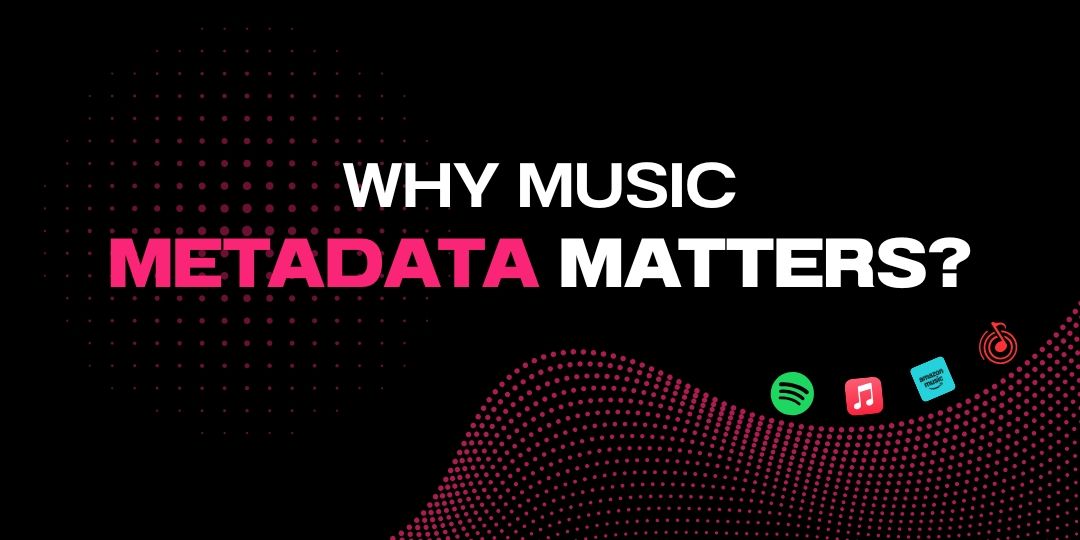
Every artist dreams of having their music reach the right audience, and while promotion, production, and playlists often take the spotlight, there’s a quiet hero working behind the scenes: music metadata.
At muXics.in, we help independent artists distribute their music to the world. But distribution is just one part of the puzzle—getting your metadata right is key to discoverability, royalty tracking, and long-term success.
So what exactly is metadata, and why should you care? Let’s break it down.
What Is Music Metadata?
Metadata is the hidden but crucial information embedded in your music files. It tells streaming platforms and music databases exactly what your song is, who created it, and how it should be categorized.
Here’s what typical music metadata includes:
• Song title and artist name – The essentials.
• Album info – Title, release date, and cover art.
• Genre – Helps platforms categorize your music.
• Composer and lyricist – Credit to the creators.
• ISRC (International Standard Recording Code) – A unique ID used to track plays and pay royalties if you are shifting your catalog to muXics.in.
• Producer/engineer credits – Acknowledging everyone involved.
• Featured artists – Any collaborators.
• Record label – The name of your distribution partner or label.
Metadata helps your music appear correctly on platforms like Spotify, Apple Music, YouTube Music, and more. Without it, even the best track can get lost in the noise.
Why Is Metadata So Important?
1. Discoverability
Think of metadata as SEO (Search Engine Optimization) for your music. Listeners search by artist names, song titles, and even lyrics. Accurate metadata ensures your music shows up in those search results.
Streaming platforms also use metadata to recommend tracks. If your metadata is well-aligned with a listener's taste, algorithms are more likely to suggest your song in playlists or "similar artists" feeds.
2. Better Recommendations
Platforms like Spotify rely on genre tags, mood descriptors, and other metadata fields to match songs to listeners. The more precise your metadata, the better chance your song has of being placed in algorithmic or editorial playlists.
3. Royalty Payments
Metadata directly affects how and if you get paid. ISRCs and contributor credits help platforms track who gets which share of streaming income. One incorrect letter in your artist name, and your payment could be misdirected—or missed altogether.
4. Cultural and Historical Value
Metadata acts like a digital record. It documents when the song was released, who contributed to it, and even what movement or genre it was part of. This info becomes crucial over time—for fans, journalists, and historians alike.
5. Accessibility
Lyrics, descriptions, and other metadata elements help make music more accessible. Captions support hearing-impaired fans, and clear categorization supports discoverability for visually impaired listeners.
How to Get Metadata Right on muXics.in
We’ve built our upload system at muXics.in to make it easy for you to submit the right metadata the first time. But you still need to pay attention to the details.
Quick Tips for Accurate Metadata:
• Be consistent – Use the same artist name formatting across all releases.
• Avoid keyword stuffing – Don’t add unrelated artist names or genres.
• Use proper punctuation – Avoid typos and odd characters.
• Credit all contributors – This ensures everyone gets paid fairly.
• Review before submitting – Double-check titles, credits, and ISRCs (If applicable)
• Remember, uploading a track is easy—but uploading it right is what ensures long-term success.
Final Thoughts: Metadata Is Not Optional
As an independent artist, you may not have a big team behind you—but you have muXics.in. And we’re here to remind you that metadata is your digital foundation.
It’s what allows your music to be discovered, credited, paid for, and remembered.
So whether you’re dropping your first single or releasing your third album, take the time to get your metadata right. It’s one of the smartest, simplest moves you can make for your career.
.png)